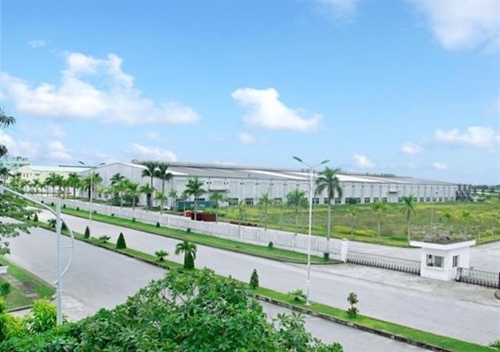Since the ICs will be located in urban areas, priority should be given to projects in clean and hi-tech industries, Thang said at the opening of the 9th session of the municipal People’s Council that opened on July 8.
Hanoi authorities have made great efforts to attract both foreign and domestic enterprises to ICs over the years, helping to affirm the city’s position as the leading economic hub in the north, he added.
The city has thus far this year approved the establishment of 11 ICs.
Hanoi is now home to 70 operational ICs, covering a total area of more than 1,300ha, with a total of 3,100 businesses.
    |
 |
|
A part of the Thanh Oai industrial cluster in Hanoi. Photo: tinbatdongsan.com |
Following the city’s industrial cluster development master plan for 2020 with a vision to 2030, the city is expected to have 159 ICs spanning more than 3,200ha by 2030.
In the period to 2020, there will be 138 industrial clusters with an area of more than 2,620ha in the city. Of these, 52 are newly established zones, covering 590ha.
In the 2021 to 2030 period, five existing industrial clusters will be expanded with a total area of 45.4ha, and 21 new ones covering 536ha will be established.
According to the plan, industrial complexes located in five northern districts - Soc Son, Me Linh, Dong Anh, Long Bien and Gia Lam - will give priority to several sectors, including electronics and information technology, engineering, automotive, and production of new materials, as well as pharmaceuticals and cosmetics.
Industrial complexes in the two southern districts of Thuong Tin and Phu Xuyen will focus on luring projects in high-tech farming and supporting industries, especially those serving the textile and garment, footwear, mechanical engineering and electronics sectors.
Meanwhile, those in the western areas of the city, such as Hoa Lac, Xuan Mai and Mieu Mon, will be involved in bio-industries for agriculture, hi-tech industries, construction materials and hi-end furniture production.
Source: VNA